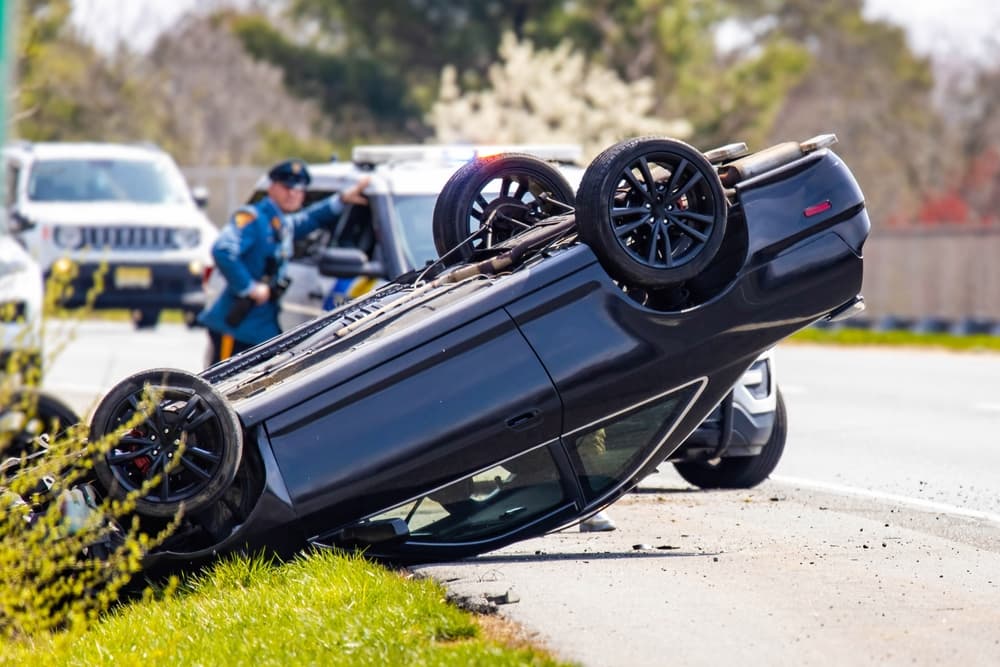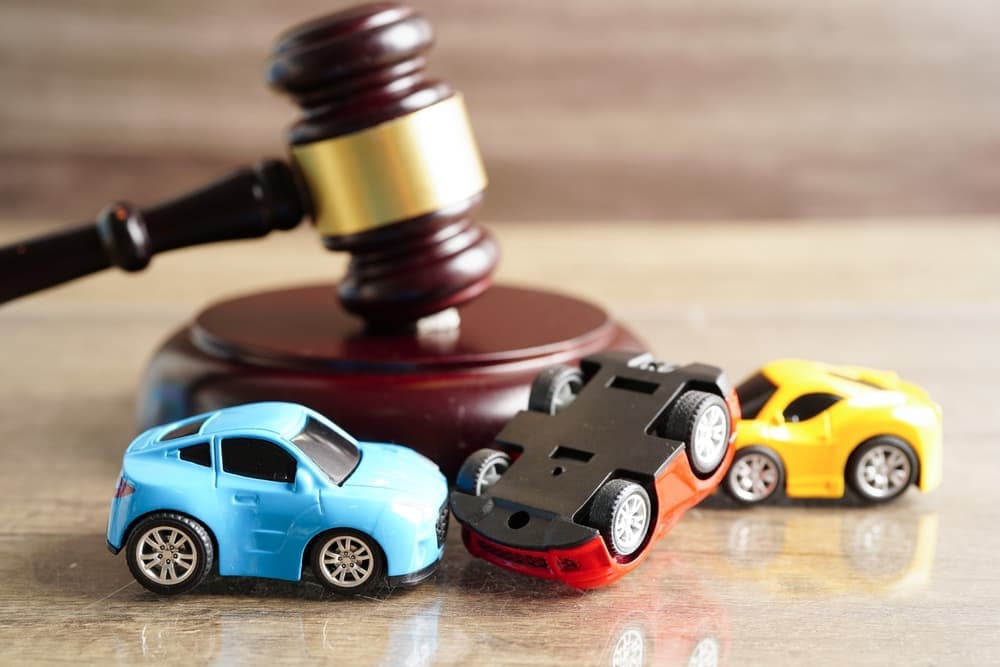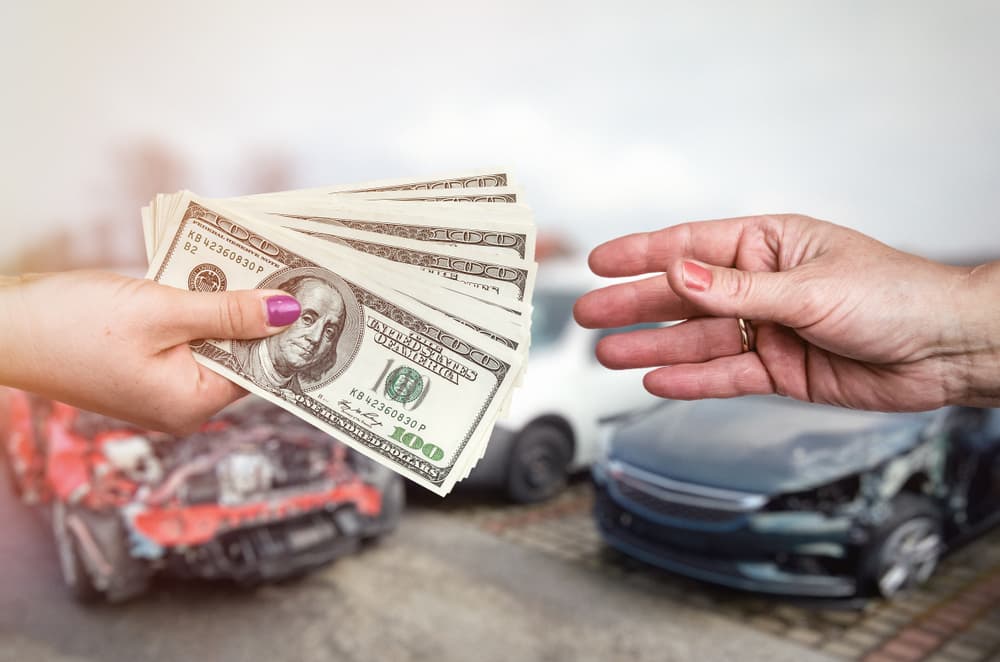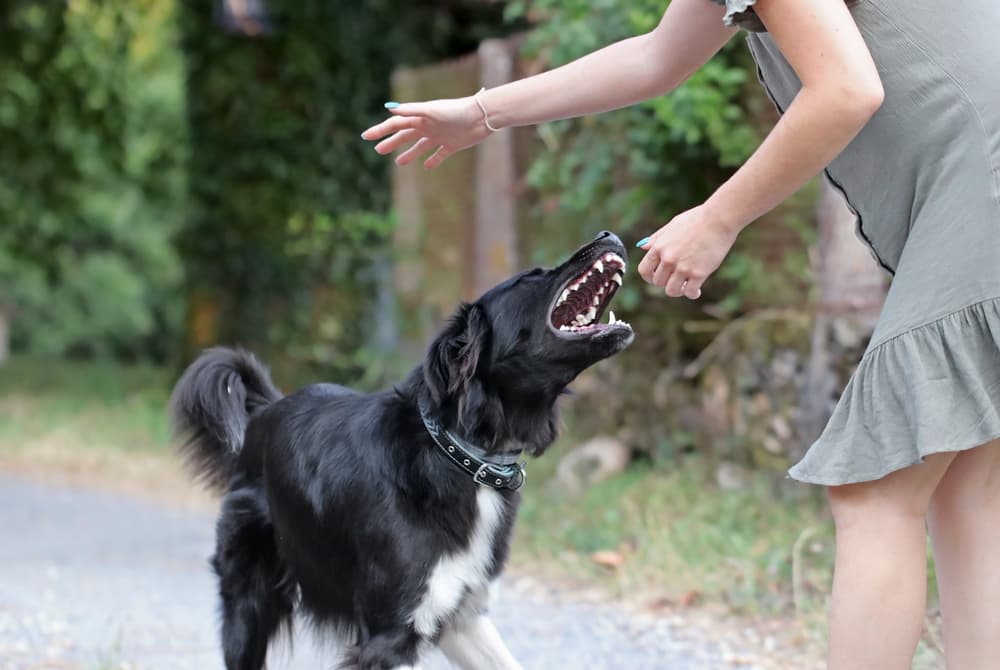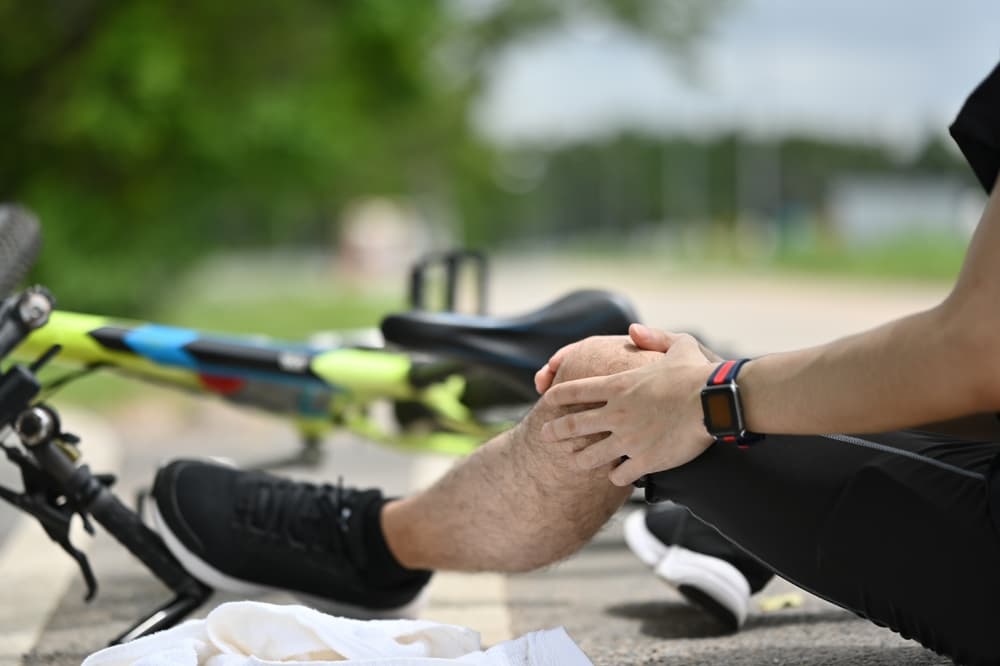A rollover occurs when a vehicle tips over onto its side or roof, often leading to serious injuries or fatalities. While driver behavior or vehicle design causes many rollover accidents, the actions of other negligent drivers can also play a significant role.
If you sustained injuries in a rollover accident, a personal injury lawyer skilled in rollover accidents can handle every step of the process for you, aggressively negotiate on your behalf, or litigate your case to a conclusion in the state court system.
Schedule a Free Initial Consultation Today!
How Do Negligent Drivers Cause Rollover Accidents?
Negligence by other drivers can cause rollover accidents, which are some of the most dangerous car crashes.
- Drivers can cause a rollover accident through reckless or aggressive driving. For example, if a driver suddenly cuts off another vehicle without leaving enough space, the driver being cut off may swerve sharply to avoid a collision. This sudden, sharp turn can cause the vehicle to lose control – particularly if it is a top-heavy vehicle like an SUV or truck – leading to a rollover accident.
- Speeding can lead to a rollover. When drivers speed, they reduce the time they and other drivers have to react. If a speeding vehicle comes up too quickly behind a slower-moving car, the driver of the slower car may try to change lanes or maneuver suddenly, increasing the risk of a rollover. Speeding also increases the force of impact in a crash, making it more likely that a vehicle will roll over.
- Tailgating, or following too closely, is another negligent behavior that can cause rollover accidents. If a driver is tailgating and the vehicle in front brakes or swerves, the tailgating driver may not have enough time to stop safely. This can cause a collision or force the lead vehicle to swerve and possibly roll over.
- Negligent drivers may also cause rollovers by failing to yield the right-of-way at traffic intersections. If a driver runs a red light or stop sign and forces another vehicle to swerve to avoid a crash, that sudden movement may result in a rollover – especially at higher speeds.
Common Injuries in Rollover Accidents
Rollover accidents are among the most dangerous types of car crashes. When a vehicle flips over onto its side or roof, occupants can be thrown around inside or even ejected from the car.
This type of crash often leads to severe injuries and long-term physical damage.
- One of the most common injuries in rollover accidents is head trauma. When the vehicle rolls, occupants can hit their heads against windows, the roof, or other hard surfaces. This can lead to concussions or more severe brain injuries like traumatic brain injuries (TBIs). A TBI can result in memory loss, difficulty concentrating, or even permanent brain damage.
- Another common injury in rollover accidents is spinal cord damage. The force of the crash can twist and compress the spine, leading to fractures or dislocation of the vertebrae. In the worst cases, this may cause paralysis if the spinal cord is severely injured. Back injuries like herniated discs can cause long-term pain and mobility issues.
- Broken bones are almost inevitable in a rollover accident. The violent movement can cause vehicle occupants to break their arms, legs, ribs, or other bones. Ribs are particularly vulnerable because the chest is often compressed due to the force of the crash – or from the seatbelt.
- Internal injuries are another serious consequence of rollovers. These injuries can be difficult to detect immediately but can be life-threatening. Common internal injuries include organ damage, such as ruptures in the liver, spleen, or kidneys, as well as internal bleeding. If not treated quickly, internal injuries can lead to significant blood loss or infection.
- Additionally, whiplash is a frequent injury in rollover crashes. This happens when the neck is jerked suddenly back and forth, damaging the muscles and tendons in the neck. Although not always life-threatening, whiplash can cause chronic pain and stiffness.
- Lastly, cuts and lacerations often occur as occupants are thrown around or come into contact with broken glass and sharp metal edges. Deeper wounds can lead to significant blood loss or infection if not treated promptly.
What Are the Legal Elements of a Third-party Rollover Accident Claim or Lawsuit?
In a third-party rollover accident claim or lawsuit, proving liability is necessary to recovering compensation for your injuries and damages. To win your case, you must establish certain legal elements of proof.
These elements show that the other party was responsible for the rollover accident and your resulting injuries.
- Duty of Care – The first element is proving that the other party owed you a duty of care. In most cases, all drivers on the road owe a duty of care to one another to drive safely and follow traffic laws. This includes obeying speed limits, avoiding distractions, and not driving under the influence.
- Breach of Duty – Next, you must show that the other party breached their legal duty of care. A breach occurs when a driver fails to act in a reasonably safe manner. Examples of breaching the duty of care in a rollover accident may include speeding, reckless driving, or failing to maintain control of the vehicle. In cases where a vehicle defect caused the rollover, the manufacturer or mechanic may have breached their duty by providing a faulty product or substandard service.
- Causation – Once you’ve shown that the duty of care was breached, you must prove causation. This means demonstrating that the breach directly caused your accident and injuries. You must link the other party’s actions (or inactions) to the rollover accident. For example, if the driver was speeding and lost control, causing the rollover, you must prove that this speeding caused the crash.
- Damages – Finally, you must prove that you suffered damages due to the rollover accident. Damages can include medical bills, lost income, property damage, pain and suffering, and emotional distress. You need to show that these damages were directly related to the accident.
Types of Evidence to Support Your Rollover Accident Case
To strengthen your rollover accident claim, you will need solid evidence like:
- Police reports – These contain important details about the accident, including any citations issued or observations from officers at the scene.
- Eyewitness statements – Testimony from witnesses who saw the accident can corroborate your version of events.
- Photos and videos – Visual evidence from the crash scene, vehicle damage, or injuries can be powerful in demonstrating what happened.
- Medical records – These prove the extent of your injuries and the treatment you needed after the rollover accident.
- Expert testimony – Accident reconstruction experts can analyze the crash and testify to how the accident occurred.
Having strong evidence can significantly improve your chances of winning a rollover accident claim or lawsuit.
Will My Rollover Accident Case Go to Court?
Whether your rollover accident case will go to court depends on several factors. In many cases, accident claims can be settled without going to court. However, if there are disputes or complications, litigation may become necessary.
Settling the Case Out of Court
Most personal injury cases, including those involving rollover accidents, settle out of court. If the at-fault party’s insurance company accepts liability and offers a fair settlement, there may be no need to go to trial. Settlements can save time and money and allow you to avoid the stress of going to court.
After the accident, your rollover accident lawyer will likely negotiate with the insurance company. If both sides can agree on a settlement amount that covers your medical bills, lost income, and other damages, you can close the case without litigation.
However, if the insurance company offers a low settlement or disputes your claim, litigation may be necessary to secure fair compensation.
Reasons Your Case May Go to Court
There are several reasons why a rollover accident case may need to go to court:
- Disputed Liability – If the other party or their insurance company denies responsibility for the rollover accident, you may need to go to court to prove who was at fault. This often happens when there is conflicting evidence or when multiple parties are involved, such as in multi-vehicle accidents.
- Insufficient Settlement Offer – If the insurance company offers an amount that does not adequately cover your medical expenses, property damage, and other losses, you may choose to litigate. Sometimes, insurers will only offer a reasonable settlement after seeing that you are willing to take the case to court.
- Complex or Severe Injuries – Cases involving severe or long-term injuries often require higher compensation, which insurance companies may be unwilling to pay without a fight. Complex injuries may also need expert testimony, which can lead to litigation.
While many rollover accident cases can be settled without litigation, some cases may need to go to court – especially if there is a dispute over liability or the compensation being offered. Your personal injury lawyer can guide you on whether pursuing litigation is the best option in your case.
Recoverable Third-party Compensation in a Rollover Accident Case
In a rollover accident case, victims may recover third-party compensation, depending on the severity of the crash and the damages they suffered. Compensation can help cover medical bills, lost earnings, pain and suffering, and more.
Here are the main losses that you can seek compensation for after a rollover accident:
- Medical Expenses – One of the most significant losses is for medical expenses. Rollover accidents can cause serious injuries like broken bones, head trauma, or spinal cord damage. These injuries often require extensive medical treatment, including hospital stays, surgeries, physical therapy, and prescription medications. You can seek compensation for both current and future medical bills related to the accident.
- Lost income – If your injuries prevent you from working, you may be entitled to compensation for lost earnings. This covers the money you would have earned if the accident hadn’t occurred. If your injuries are long-term or permanent, you may also seek compensation for loss of earning capacity. This means that if you can no longer perform the same job or work the same hours, you may recover money for the income you would have earned in the future.
- Property Damage – A rollover accident may severely damage or even total your vehicle. You can recover compensation for property damage, which includes the cost of repairing or replacing your car. In some cases, you can cover other personal belongings damaged in the crash, like electronics or personal items.
- Pain and Suffering – Beyond physical injuries, you may recover compensation for pain and suffering. This covers the physical pain and emotional distress resulting from the accident. Rollover accidents can be traumatic, and victims may suffer from anxiety, depression, or post-traumatic stress disorder (PTSD) after the crash. Compensation for pain and suffering addresses the emotional toll of the accident.
- Loss of Life Enjoyment – If your injuries prevent you from enjoying activities you used to love, like hobbies, sports, or spending time with family, you may receive compensation for loss of enjoyment of life. This compensation for this loss acknowledges that your quality of life has been significantly affected by the accident.
- Punitive Damages – In cases involving an especially reckless or negligent driver, the court may award punitive damages. These damages punish the at-fault party and discourage similar behavior, such reckless or intoxicated driving.
Contact an Experienced Rollover Accident Lawyer Today
If you sustained injuries in a recent rollover crash that resulted from someone else’s negligence, you are not alone. A skilled personal injury attorney can aggressively advocate for you and work to maximize the settlement or litigation compensation you receive for your losses.
One of the most valuable resources a rollover accident attorney can offer is a free consultation. Don’t delay, call today.
